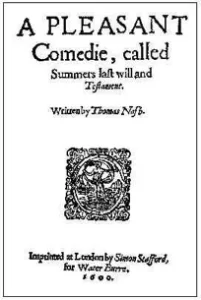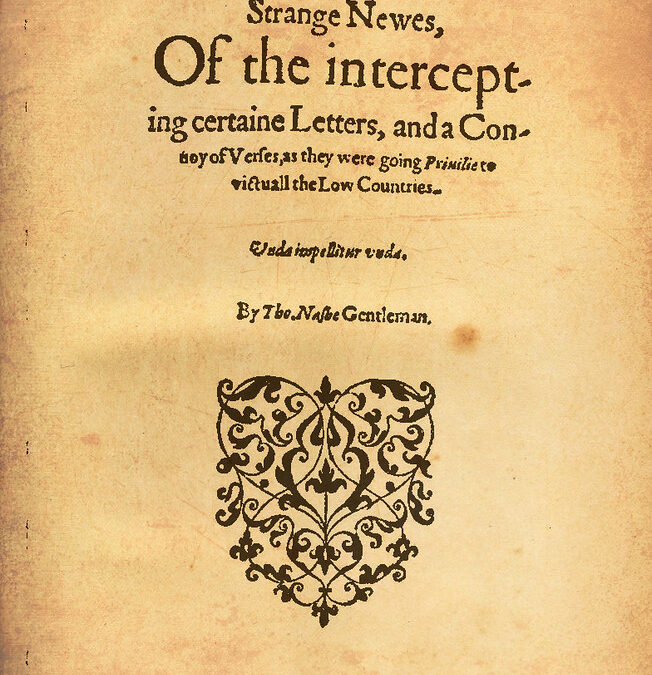The Elizabethan spelling, potte-lucke, appeared in print fifty-one years before pique-nique appeared in a French satire in 1649.
Thomas Nashe was the first to use the expression the compound word potte-lucke. He used it twice in 1592: first, in the verse satire Strange News, and second, in the play Summer’s Last Will and Testament. No one noticed, yet the idea caught on.

In Strange News, potte-lucke is an insult: “I’ll be your daily Orator to pray that that pure sanguine complexion of yours may never / be famished with potte-lucke that you may taste till your last gasp.” In Summer’s Last Will, potte-lucke is used as we now know it: Bacchus informs Summer not to worry about the coming Fall since the wine will be good: “Faith, shall I tell you no lie, because you are my countryman & so forth, & a good-fellow is a good-fellow though he have never a penny in his purse? We had but even potluck; a little to moisten our lips, and no more.”
Though they both involve sharing at a dinner, pique-nique refers to the Parisian dining custom of guests sharing costs or contributing to a dinner. Potluck refers to the custom of dropping in for dinner and dining on whatever is available. Originally, potlucks depended on happenstance, but contemporary customs are usually planned by guests who bring assigned contributions to a potluck dinner. In our time, potluck and picnic are used interchangeably. But potluck always requires food; picnics do not.
See Thomas Nashe. Strange News of the Intercepting Certain Letters (1592) and Summer’s Last Will and Testament (1592/1600); The Works of Thomas Nashe. Charles Nicholls. A Cup of News: The Life of Thomas Nashe. London: Routledge & Kegan Paul, 1984; Andrew Hatfield. Thomas Nashe’s Dog Days,” Times Literary Supplement. September 26, 2014.

